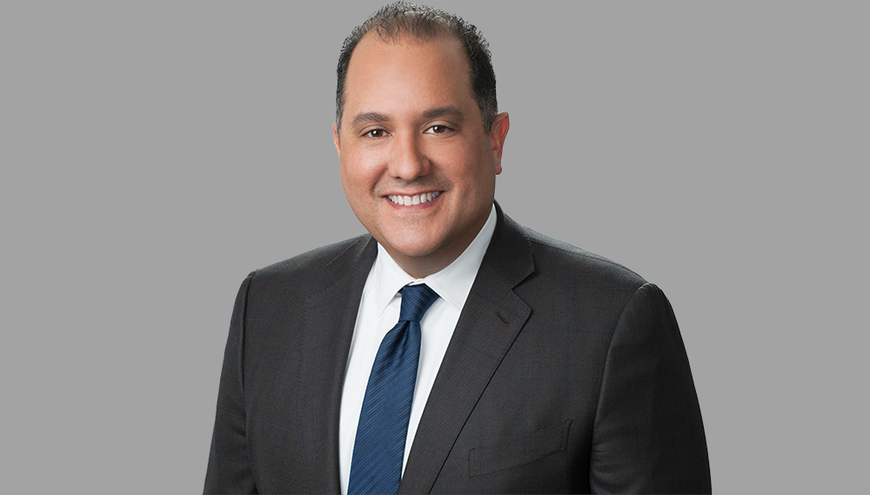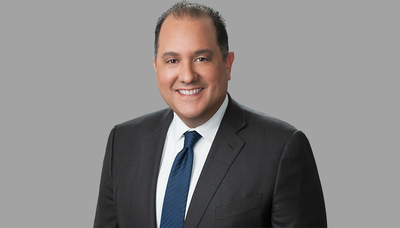

The US online poker market has seen some big changes so far in 2022:
- Rush Street Interactive (RSI) grabbed Phil Galfond’s Run It Once (RIO) Poker for $5.8 million on March 3, leading to speculation that a new online poker platform could be forthcoming.
- In Michigan, WSOP MI went live on March 28, expanding its rivalry with BetMGM and PokerStars to another state.
- Michigan also officially signed the Multi-State Internet Gaming Agreement (MSIGA) in May, becoming the interstate gaming compact’s fourth state. Pennsylvania is rumored to be considering joining as well but hasn’t made a decision yet.
But online poker in the US remains affected by the federal government’s decision eleven years earlier to crack down on online poker operators that were active at the time, including PokerStars. The ongoing Wire Act case in Rhode Island District Court could provide clarity for the industry, or it could continue to be a source of frustration.
In an exclusive interview, gaming attorney Jeff Ifrah, of Ifrah Law PLLC, discusses several topics in online poker, including the changing landscape for online poker in Nevada, current challenges facing the industry, and the state of the US online poker market overall.
BetMGM Poker NV is expected to launch soon. Have brick-and-mortar casinos changed their stance on online poker and casino gaming? Are we likely to see additional operators jump into Nevada?
There absolutely is an interest in Nevada to consider not just online poker but also online casino gaming — which is legal, but Nevada has not yet issued regulations.
I absolutely think there has been a change of heart. Nevada legalized online casinos and online poker years ago — it just never took off on the casino side. That’s primarily because land-based casinos, five and 10 years ago, were largely opposed to the expansion of online casino games for fear that it would cannibalize their revenue. Now they realize it’s not cannibalizing their revenue, it’s introducing them to new customers. They’re able to expand their revenue into new age groups that they weren’t seeing before.
Nevada does require registration in a casino, so that’s not the greatest thing — that’s a little bit of an impediment to rolling out. Nevada is a small market, population-wise it’s similar to Delaware. There is a tourist population, and people think they will play on their desktops and phones while they’re in their rooms, rather than go to the hotel floor. That kind of mobile-on-premises casino gaming has always been approached with a little bit of hesitation by the operator because there’s a belief that it’s so limited.
There absolutely is an interest in Nevada to consider not just online poker but also online casino gaming — which is legal, but Nevada has not yet issued regulations. There are licenses pending, some of them have been pending for 10 years. Some operators submitted licenses when the law first came out. None of those licenses are being considered, but that could change. The land-based casinos are, for the most part, already partnered with online gaming operators in states where it’s legal. They want to see it expand in Nevada, too.
Back in 2013, Nevada enacted a law (AB114) that placed a five-year restriction on “bad actors” from entering that state’s regulatory market. That has presumably expired. So, what is preventing PokerStars from returning there?
Well, first of all, the law is totally illegal and unconstitutional, and when it’s challenged, it will fail. But until that time, the way that the law reads is the law tracks the assets through new owners — who, of course, are innocent. It’s preposterous, it’s not the way the law works, and on top of that, it violates the Constitution because it’s an illegal bill of attainder. You can’t legislate to exclude a particular player from a particular industry, but that’s exactly what Nevada did. They were trying to exclude PokerStars.
But I don’t think that had any impact on PokerStars’ success. They didn’t need to go into Nevada, and Nevada didn’t have much of an online poker market, to begin with.
The bigger concern [at the time] was that the same language also appeared in California when California was looking at online poker and online gaming legislation. They also wanted to include a 'bad asset’ provision. That ultimately didn’t happen, which is good.
The Wire Act case in Rhode Island District Court is still unresolved. If the judge rules in favor of IGT, would that broadly mean that the ruling applies to the First Circuit, but that the US Supreme Court would ultimately decide whether it applies in every circuit? Will the industry get clarity from this case?
The main problem is establishing liquidity for a poker market across the country, from sea to shining sea. Even with the poker compact in the four states that it’s in, which is a healthy size, we still are leaving poker players essentially locked out in huge population areas.
I guess the Supreme Court would have to decide that. But I think, as a matter of common sense, no one is going to take a contrary position. I don’t see that happening.
I don’t think that anyone had any questions before this case. I think the case injected confusion where there was clarity because no one was looking for this super extra double-layer of protection.
It’s been reported that the US online poker industry is about 40% of the size it was at its peak in 2011, before Black Friday. What would help online poker’s revival?
The main problem is establishing liquidity for a poker market across the country, from sea to shining sea. We don’t have a live online viable poker market in California. Even with the poker compact in the four states that it’s in, which is a healthy size, we still are leaving poker players essentially locked out in huge population areas.
Most of our country is now moving to our Southern, Southeastern, and Southwestern states, and none of those areas are legal for online poker. The big population centers, where younger people are moving, are not states where online poker is legal. I think if you look at land-based poker tournaments, they’re doing super well — COVID aside — and there’s no reason to think that poker can’t return to those numbers and more. But we really need legislators to start taking a look at legalizing online poker, and right now there’s not a lot of motivation to do that.
What do you see are the biggest challenges for online poker right now?
[Illegal US-facing operators] make it so difficult to operate legally and there’s just a limited amount of things that are being done to curb their popularity.
The challenges are the illegal US-facing operators. I don’t know that that’s going to be solved in our lifetime. They make it so difficult to operate legally and there’s just a limited amount of things that are being done to curb their popularity.
They have access to the whole country, whereas licensed regulated poker operators only have access to four or five states. I think that’s the biggest issue right now. The second issue is this lack of willingness for state legislators to consider the expansion of existing legislation to cover online poker. I think those are two issues that go hand-in-hand. If those issues could be solved, then I think the industry could definitely bounce back.
Where do you see online poker in the US in five years?
I don’t think it’s going to change that much. I think five years from now we’ll have picked up maybe two more states, but I don’t think those two states will have joined the [MSIGA] compact. I think that the states in the compact are going to stay the same.
Speaking of MSIGA, Michigan is now in. Have you heard anything about Pennsylvania?
We really do need to get Pennsylvania on board. That wouldn’t be a bad accomplishment to have under our belts, seven to eight years in the making.
No, I haven’t. Early on, we had thought Pennsylvania would be interested. I don’t really know what the holdup is in Pennsylvania.
This really is a difficult issue to get in front of a busy governor’s agenda. This whole initiative is largely benefitting one specific brand of poker [WSOP] over others. It’s not a huge market and it’s not a huge tax revenue generator for the state to begin with. There are a lot of factors detracting from the ability to get traction with the governor in Pennsylvania.
We’ve got a nice population base. It took a long time to get New Jersey on board. It didn’t take as long to get Michigan on board. But we really do need to get Pennsylvania on board. That wouldn’t be a bad accomplishment to have under our belts, seven to eight years in the making. And you’re talking overall about a small market that generates not so much tax revenue getting the attention of governors to enter into a pretty incredible, unprecedented compact.
I think West Virginia [joining] would be a little easier, just because they seem overall to be more approachable and amenable to growing their market. Even though it’s a tiny population, it would be nice if there was another state that joined. But they were kind of 'stop-and-start’ because of the Wire Act, and as a result, they’re in a position now where they don’t even have operators. They put a full hold on casinos and poker when the Wire Act litigation was going on in New Hampshire originally. Obviously, that slowed things down for them at a time when other people were not doing that.
Learn more and grab the latest US Online Poker Promo Codes in our comprehensive guide!

